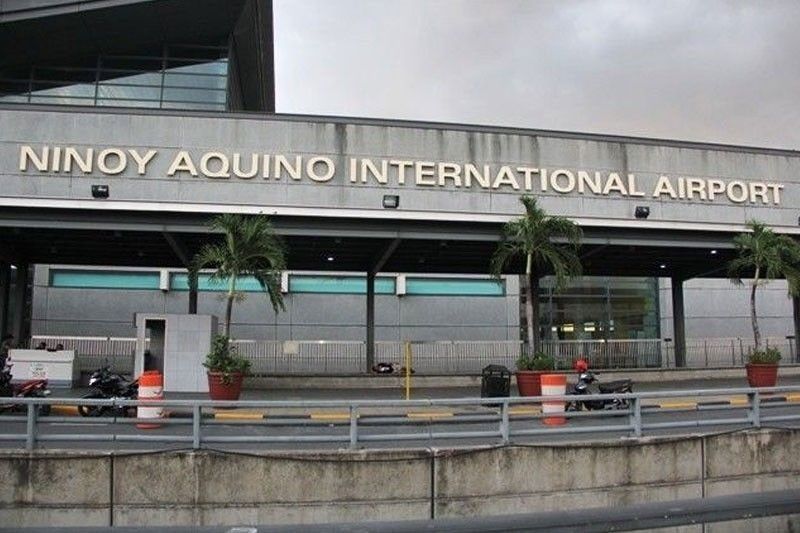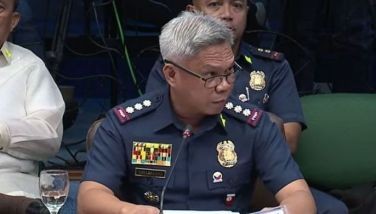Suspension of new NAIA terminal assignments urged

MANILA, Philippines — A lawmaker in the House of Representatives is calling on the Manila International Airport Authority (MIAA) to “put on hold” its newly implemented reassignment of airlines among the country’s four airport terminals in Pasay City.
Camarines Sur Rep. LRay Villafuerte wants MIAA to “rethink” its program that he observed has “apparently exacerbated, rather than eased, passenger congestion at the Ninoy Aquino International Airport (NAIA) terminals.”
“With passenger queues reportedly getting even longer at the NAIA departure areas, airport officials need to take a pause on their STAR (Schedule and Terminal Assignment Rationalization) program,” Villafuerte said yesterday.
Villafuerte believes terminal assignments need to “return to the status quo” until such time it has “finished reviewing and tweaking its new STAR program with an eye to finally improving the airport experience for both local and foreign air travellers.”
He said “unless the new terminal assignments are reversed for the meantime, airport congestion will only get worse by the day as more and more Filipinos travel by air in a dash for revenge travel.”
The airline reassignments are part of the STAR program, which MIAA launched on April 16 to ease airport congestion. Under the program, MIAA estimates the capacity of Terminal 2 to increase from 7.5 million to 10 million passengers a year.
However, airport congestion took a turn for the worse, at least at the NAIA-1 last week, as MIAA began transferring there on June 16 all of PAL’s international flights previously assigned to NAIA-2.
Passenger concerns
In a public hearing held by the Senate committee on tourism last Wednesday, Sen. Bong Go took up the cudgels for passengers expressing their concerns regarding the growing number of complaints against airlines, particularly those involving Cebu Pacific.
“Let me share with you my observation, not as a senator but as an ordinary Filipino. Many times, Cebu Pacific is on time. However, lately, there were many reports of delayed and cancelled flights. In fact, even former president (Rodrigo) Duterte, experienced a delayed flight, from 5 o’clock, it became 9:30, just last Saturday,” Go said.
He also shared his own experience of flight delays, including a recent incident where he received a boarding time notification on his cellphone, only to find out upon arrival that the airplane had not yet arrived.
Go likewise highlighted the inconveniences faced by passengers during the waiting period inside the plane.
The senator urged that affected individuals be compensated for the inconvenience, considering the impact on passengers’ schedules.
He called on Cebu Pacific to establish effective mechanisms for compensating and assisting affected passengers, which should include providing food, water, alternative flights, accommodation in nearby hotels as well as reimbursements due to inconvenience.
The senator then called upon regulatory bodies and consumer protection agencies to intervene if necessary. “I think the proper compensation here is really to improve the service and make sure these incidents would not happen again. Because we hear it over and over again,” he added.
Go advised authorities to prioritize the welfare of passengers and enhance the system to make air travel more convenient and reliable.
“We owe it to our passengers to create an environment where their journeys are smooth, reliable, and filled with hope. My advice to Cebu Pacific, as a senator and as an ordinary Filipino commuter, is to prioritize the welfare of their passengers, prioritize public convenience so that you can foster an atmosphere of trust, reliability, and compassion,” he said.
Two more airlines
For his part, former president Duterte said the country needs two or more airlines to solve the current problems travellers are facing.
“Our airlines are not on time. I am not particularizing any airline, they are delayed and after many hours of waiting the flights are totally cancelled,” Duterte said in his Gikan sa Masa, Para sa Masa TV program aired by SMNI News on Monday.
Duterte also bemoaned the airlines’ tendency to overbook passengers.
To solve this problem, Duterte said there needs to be more local airlines operating in the country to serve local and foreign travellers.
He also criticized the airlines’ propensity to keep increasing ticket prices. “Airfare also keeps increasing… it gets more expensive day by day. There has to be a limit to everything,” he said.
Duterte also disapproved of the airlines’ way of embarking and disembarking passengers, and said that there has to be a better system than the current chaos.
Airlines buy planes
The country’s leading airlines are acquiring additional aircraft in the near term to minimize flight cancellations and restore normalcy in their operations given the shortage in certain jet equipment and parts.
Flag carrier Philippine Airlines (PAL) and low-cost operator Cebu Pacific plan to either purchase or lease new planes to fill the gap in their fleet.
PAL spokesman Cielo Villaluna said they are searching for other sources of aircraft equipment and making fresh orders from Airbus and Bombardier.
“PAL is actively seeking for more sources of critical parts suppliers in the market. Further, PAL is looking at acquiring an additional Airbus A321ceo to join [its] fleet in the first week of July,” Villaluna said.
“PAL is also finalizing lease arrangements for an additional Bombardier Q400 and Airbus A330. [There is also] one A320 expected to return from storage in the first week of August,” she added.
On the other hand, Cebu Pacific said that it increased the number of standby aircraft to four and aims to bring it to six by yearend.
Like PAL, Cebu Pacific is leasing additional planes to broaden its fleet in the near term and minimize frequency of flight interruptions.
Both PAL and Cebu Pacific regularly review their flight schedules given that they are facing supply issues for aircraft parts. Cebu Pacific, however, is decreasing its flight volume, as it expects a number of units to be unavailable for a while.
PAL and Cebu Pacific are suffering delays in the repair of jet engines made by aviation supplier Pratt & Whitney, whose engines are used to fly Airbus A320s and A321neos, of which Cebu Pacific has 24 while PAL has eight.
Stopgap measures
While it may take some time to privatize NAIA, business leaders are emphasizing the need to implement stopgap measures to make entering and exiting the country a more pleasant experience for tourists and travelers.
In an interview with “The Chiefs” on One News, Go Negosyo founder Joey Concepcion stressed the urgency of making processes at the airport more efficient.
“The privatization is gonna take time… to do this whole airport. So in the meantime, there has to be stopgap measures that have to be done,” Concepcion said.
“And the critical point is, forget the runway first. Now it’s just getting out of the airport, through the immigration. Let’s make it easy for them. And the quickest way is to expand the cubicles, maybe double it, if possible,” he added, acknowledging that more cubicles for immigration area are being built.
In the same interview, Philippine Chamber of Commerce and Industry president George Barcelon said digitalization is needed to improve service in the airport. “Through the implementation of a new digital platform, I would think that we can increase the speed probably by double digits, maybe 15 to 20 percent,” he added. – Rudy Santos, Elijah Felice Rosales, Catherine Talavera, Diana Lhyd Suelto
- Latest
- Trending






























